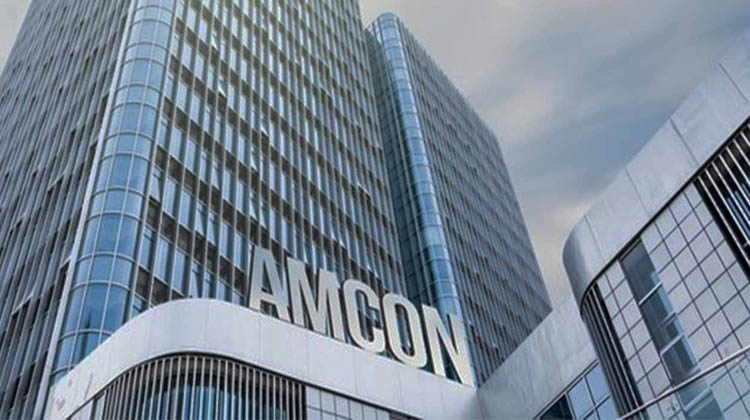The statutory contribution made by nine banks to the Asset Management Corporation of Nigeria increased by 25.81 per cent to N306.06bn in 2023 from N243.28bn in the previous year.
This is based on The PUNCH analysis of the annual reports of the banking groups filed with the Nigerian Exchange Group for the year ended 2023.
The banking groups and banks reviewed included FBN Holdings, Access Holdings, Zenith Bank, United Bank for Africa, Stanbic IBTC Holdings, FCMB Group, Guaranty Trust Holding Company, Fidelity Bank and Wema Bank.
According to the results, Access Holdings, the parent company of the largest Nigerian bank, paid the highest AMCON levy of N68.81bn, indicating a 30.48 per cent increase over the previous year’s figure.
It was followed by Zenith Bank, which paid N57.38bn compared to the N44.01bn coughed out in 2022.
AMCON received N50.10bn from FBN Holdings, N40.36bn from UBA, N27.31bn from GTCO, N23.07bn from Fidelity Bank, N15.66bn from FCMB Group, N15.39bn from Stanbic IBTC, and N7.99bn from Wema Bank.
The AMCON levy, sometimes called banking sector resolution cost, is itemised under the operating expenses of financial institutions.
A look at the financials of the banking groups showed it was one of the highest sources of expenditure for banks alongside marketing and advertising, fuel, repairs and maintenance and directors’ emoluments.
In his statement to shareholders, the Chief Executive Officer of GTCO, Segun Agbaje, said that the AMCON levy contributed to the increase in the banking group’s operating expenses.
Agbaje said, “The group’s total operating expenses grew by 26.2 per cent (N250.4bn vs N197.9bn) primarily from an increase in AMCON levy and NDIC premium. Other contributory factors to Opex growth include incremental depreciation charges arising from capital spending, effect of increased energy costs, impact of salary reviews, and impact of adverse exchange rate movement of functional currencies against the US Dollar across our jurisdiction of operations outside Nigeria.”
AMCON’s contributory cost relates to the contribution towards the fund set up by the Central Bank of Nigeria for the bailout of the banking sector.
The current applicable rate in Nigeria based on the AMCON Act of 2021 is 0.5 per cent of total assets (inclusive of off-balance sheet).
AMCON, established in July 2010 by an act of parliament, was meant to provide stability for the financial system by efficiently resolving the non-performing loan assets of the banks.
As of December 2023, AMCON said that it had recovered N1.8tn.
In December, members of the Senate Committee on Banking, Insurance, and Other Financial Institutions, demanded the dissolution of AMCON over the failure to recover N5tn liabilities.
The lawmakers made the demand when the former Managing Director of AMCON, Ahmed Kuru, appeared before it to defend the agency’s budgetary allocation for the 2024 fiscal year.
They called for the dissolution of the asset agency because its management was not proactive in recovering liabilities.
Despite the voices of dissension from some committee members, the Chairman of the Senate Committee, Senator Tokunbo Abiru, later told journalists, “The committee has agreed that there is the need for a strong financial system stability, hence agencies like AMCON is still desirable.
“We also believe that the role of AMCON is further underscored by the fact that it was set up using a model that would help us to tidy up the challenges that we had in the financial system in the past.
“The only challenge that we have today is that we need to have a definite time that all the obligations that are hanging on the throat of AMCON must be redeemed. The conclusion is that we will continue to work with AMCON and other agencies to fashion out a model that would make AMCON openly wound down its obligation at the possible shortest time.”
Meanwhile, the Chief Executive Officer of Suru Homes Limited, Edward Akinlade, claimed that AMCON had outlived its usefulness and had become more of a burden than a solution in the current economic landscape.
Akinlade underscored the financial strain on the Nigerian government caused by the continued operation of AMCON.
“They keep claiming they have recovered a certain amount, but it is just a charade. AMCON fulfilled its purpose in the first five years, stabilising the commercial banks. There is nothing left to stabilise now.
“AMCON is still in existence today with the hope of recovering loans. When a recovery effort spans a decade, there is little left to recover,” he argued.
The Suru Homes CEO suggested that companies indebted to AMCON should be provided with support in the form of grants from the FG, accompanied by the write-off of their debts.
Akinlade proposed that businesses still indebted to AMCON redirect those funds into strategic investments that contribute to the expansion and development of Nigeria.
SOURCE: PUNCHNG











